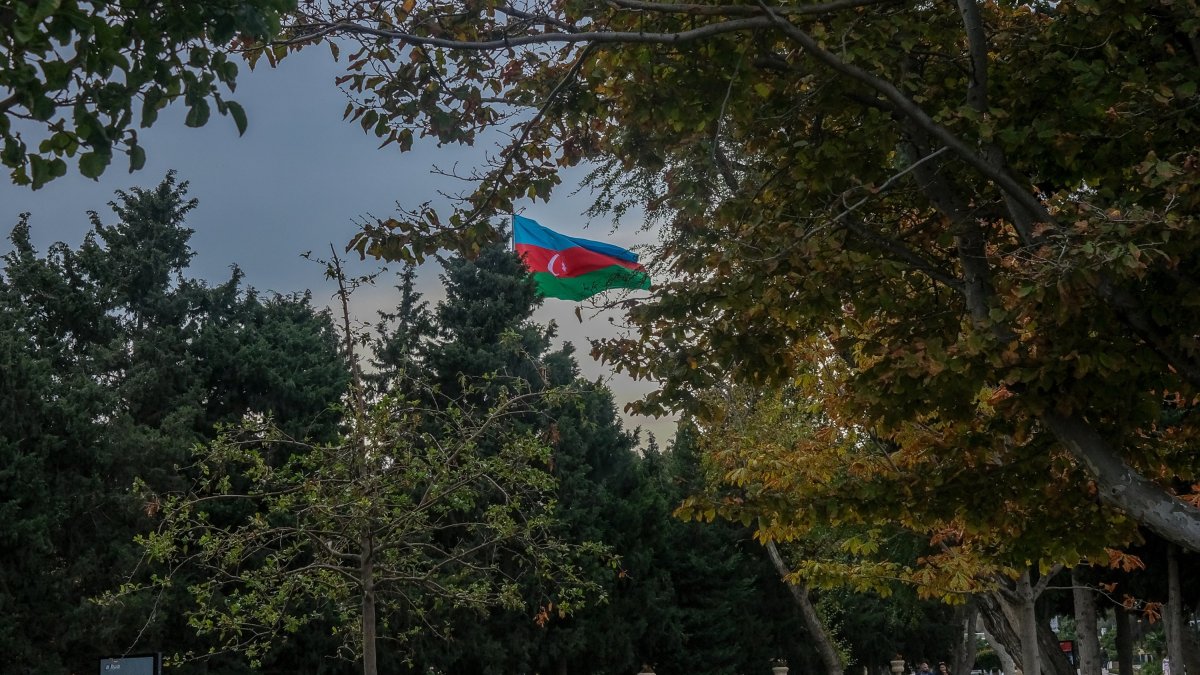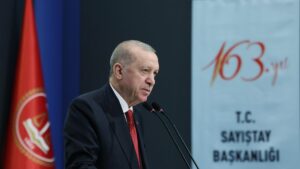May 28 is the anniversary of Azerbaijan’s first independent state in the 20th century, declared in 1918. Although short-lived, it represents the resilience of the country for sovereignty and is observed as Independence Day.
The Azerbaijani Democratic Republic, or the Azerbaijan People’s Republic, was declared on May 28, 1918, by the Azerbaijani National Council. It lasted only for 23 months, but throughout this period, it embarked on ambitious reforms, from freedoms in the economy, education, religion and conscience, providing equal rights to all citizens. Indeed, Azerbaijan was among the first countries in the East to provide women’s suffrage. The republic also stood out as a beacon of Turkish presence in the region, declaring Turkish as the state’s language and making the language mandatory in middle schools.
After the collapse of the Russian Empire following World War I, new political structures emerged in the Caucasus region. On May 28, 1918, the Azerbaijani people exercised their right to self-determination and declared independence.
The Azerbaijan Democratic Republic, proclaimed by the Azerbaijani National Council in Tbilisi of modern-day Georgia, became the first republic based on popular sovereignty in the Caucasus and the Turkic world.
The republic not only declared independence but also quickly established the foundational elements of a modern state. A parliamentary system was created, introducing a multiparty political system. Comprehensive reforms were launched in law, education, foreign policy and the military. One of the most notable steps was granting women the right to vote and be elected. This made Azerbaijan the first Muslim-majority country to grant women political rights.
Due to the occupation of Baku by Armenian and Bolshevik forces, the Azerbaijani government operated for a time in Ganja, the country’s second-largest city. The Ottoman Empire was the first state to recognize Azerbaijan’s independence, signing an agreement on June 4, 1918. As part of this, then-Minister of War Enver Pasha formed an army under the command of his brother, Nuri Pasha (Killigil), to assist Azerbaijan. Known as the “Caucasus Islamic Army,” this force liberated Baku on Sept. 15, 1918, allowing the government to relocate there. The army suffered 1,130 casualties during the battles to reclaim Baku.
Azerbaijan quickly implemented reforms in the economy, education, and freedom of religion and conscience, setting historic precedents. Equal rights were granted to all citizens regardless of race, religion, sect or gender.
It became the first Muslim-majority country in the East to grant women suffrage. The republic introduced its own currency and postage stamps and established the State Bank and Baku State University.
To defend against external threats, Azerbaijan formed its own army on June 26, 1918, with significant involvement from Ottoman officers.
On June 27, 1918, the government declared Turkish the official state language. Turkish-language instruction became mandatory in secondary schools, which had previously been taught primarily in Russian.
On Dec. 7, 1918, the 120-seat parliament began its sessions. Representing all political parties and ethnic groups, the parliament passed 230 bills during its 17 months of activity.
The Azerbaijan Democratic Republic lasted only 23 months. Soviet forces entered Baku on April 28, 1920, ending the republic’s existence and beginning Soviet occupation. However, the reforms and ideals established during this brief period deeply influenced Azerbaijan’s political identity and left a lasting legacy.
Mehmed Emin Resulzade, recognized as the founder of Azerbaijan, famously said, “The flag once raised will never fall.” This phrase became a rallying cry for Azerbaijanis years later.
After the Soviet occupation, many government officials and intellectuals fled the country but continued to champion Azerbaijan’s cause throughout their lives.
Following the collapse of the Soviet Union, Azerbaijan declared independence again, recognizing itself as the successor state to the Azerbaijan Democratic Republic of 1918-1920.



















































Be First to Comment